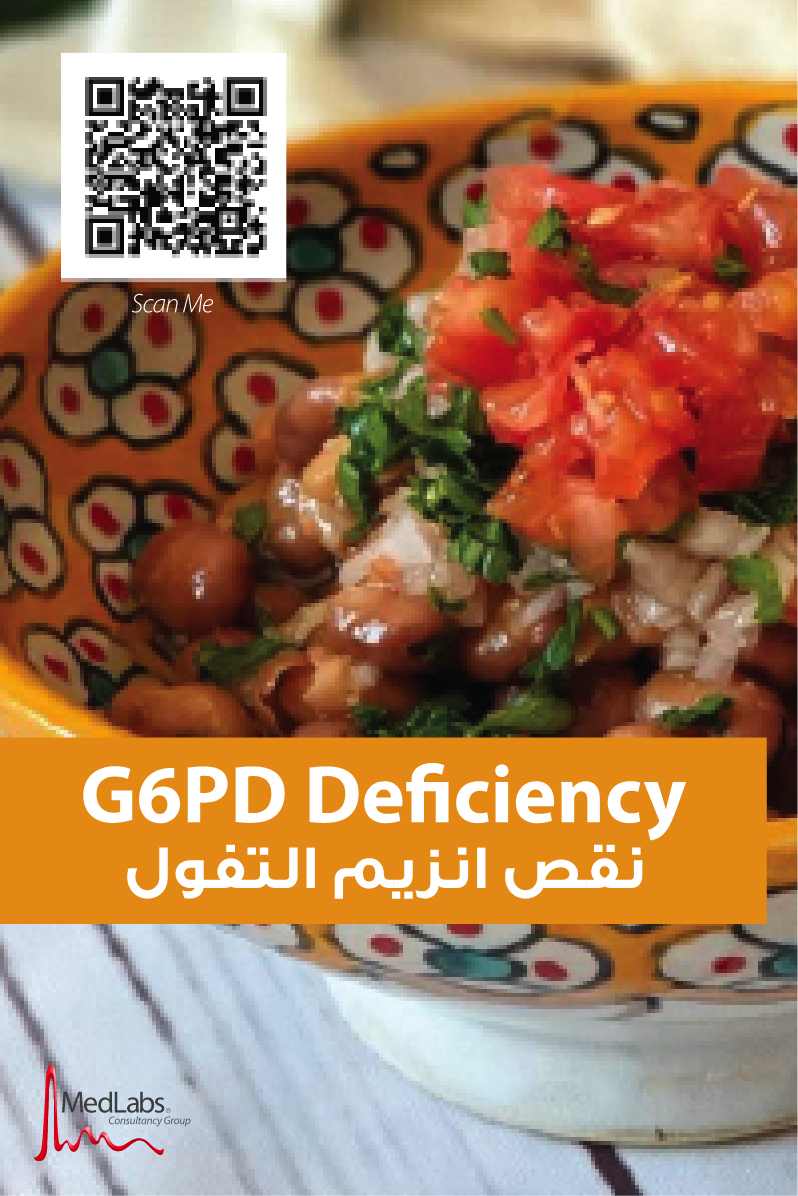
Glucose-6-phosphate dehydrogenase (G6PD) is the most common human enzyme deficiency worldwide. It is most prevalent in Africa, the Middle East and Southeast Asia. G6PD is an X-linked genetic disorder, which means that males are more likely to be affected than females. Females need to have 2 defective copies of the gene in order to be affected, whereas if the male inherits the defective gene, he will definitely suffer from G6PD deficiency.
What conditions are G6PD sufferers at risk for?
- Hemolytic Anemia: a condition in which the red blood cells can no longer transport oxygen effectively throughout the body due to the denaturation of the hemoglobin molecule. An anemic response can be induced in affected individuals by certain oxidative drugs, fava beans, or infections (especially viral hepatitis, pneumonia and typhoid fever).
- Neonatal Jaundice: A yellowish discoloration of the whites of the eyes, skin and mucous membranes caused by deposition of bile salts in these tissues.
What are the other symptoms associated with G6PD deficiency?
- Sudden rise of body temperature , yellow coloring of skin and mucous membranes
- Dark yellow-orange urine
- Pallor, fatigue, general deterioration of physical conditions
- Heavy, fast breathing
- Weak, rapid pulse
How is G6PD deficiency diagnosed?
A simple blood test measures the amount of the enzyme, G6PD, in red blood cells. Decreased levels indicate reduced G6PD activity. G6PD is an essential test for newborn babies and is part of Medlabs Neonatal Screening test.
Can G6PD deficiency be cured and the risks minimized?
If you notice any of the symptoms associated with G6PD deficiency, contact your physician immediately.Severe hemolytic crisis, are usually treated by blood transfusion. The best therapy is simply to avoid the prohibited drugs and foodstuffs.
list of medications to avoid
1- Antibiotics:
- Sulfanilamide
- Sulfapyridine
- Sulfadimidine
- Sulfacetamide
- Glucosulfone sodium
- Nitrofurantion
- Furazolidone
- Nitrofurazone
- Dapsone
- Sulfoxone
- Sufisoxazole
2. Antimalarials:
- Primaquine
- Pamaquine
- Chloroquine
3. Anthelmintics:
- B-Naphthol
- Stibophen
- Nitidazole
4. Miscellaneous:
- Probenecid
- Thiazide Diuretics
- Phenothiazine
- Chloramphnicol
- Orinase
- Dimercaptol
- Methylene blue
- Naphylene (moth balls)
- Vitamin K
- Fava beans
5. Analgesics (Which contain aspirin or phenacetin) such as:
- Aspirin
- Bufferin
- Anacin
- Exedrin
- Empirin
- APC Tablets
- Darvon Compound
- Coricidin
6. Food:
- Fava beans





